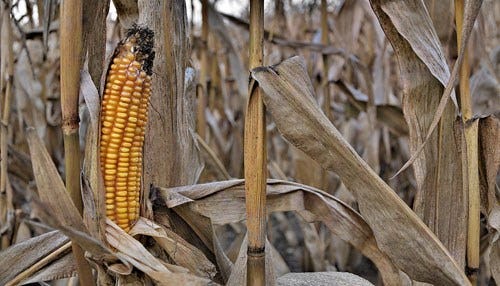Purdue Researchers Land $2.3M Grant for Ethanol Research
 (stock image Pixabay/Jim Garecki)
(stock image Pixabay/Jim Garecki)
Subscriber Benefit
As a subscriber you can listen to articles at work, in the car, or while you work out. Subscribe NowWhile most ethanol in the U.S. is made from corn, the U.S. Environmental Protection Agency requires a percentage of ethanol be produced from non-food based cellulosic feedstock, like crop or wood residue. Researchers at Purdue University have received a $2.3 million federal grant to help find ways to minimize the impact of dried plant material refinery systems.
Corn stover, what’s left of the corn stalk after harvest, is a common ingredient in the cellulosic ethanol recipe.
A big challenge of turning the field waste into fuel is moving the feedstock through refinery equipment so it can be physically and chemically treated, but not plug-up the system.
To find some answers, the U.S. Department of Energy has turned to Purdue University. A team of Purdue researchers received the federal grant to create computer models to simplify the design and construction of biorefineries.
“We have basically used fundamental theories, particle properties, and measured bulk characteristics to develop and verify computational tools for biorefineries that are taking a material like corn stalks, sugar cane bagasse, or sawdust and making them flow like a liquid,” said Michael Ladisch, professor of Agricultural and Biological Engineering at Purdue.
Ladisch says the team has created analytical models that represent the flow performance of biomass materials to indicate where plugging problems might occur at the biorefinery.
The new grant will further look at techniques and technology already developed at Purdue to breakdown the feedstock while avoiding chemical agents.
